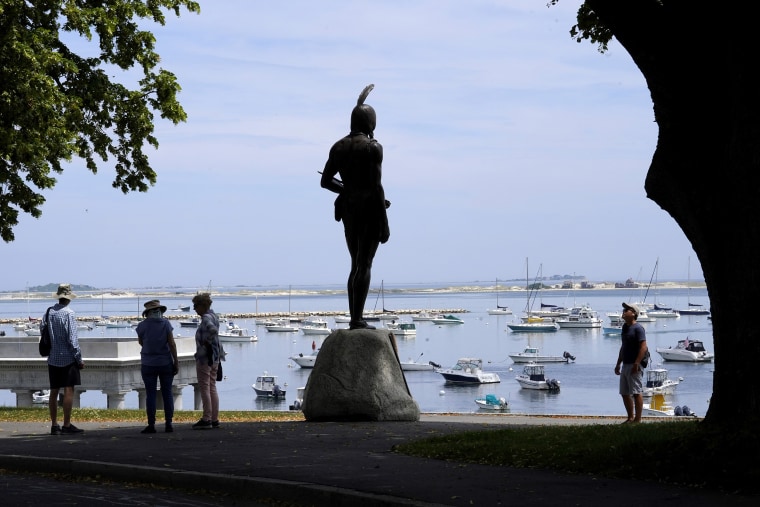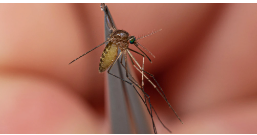Every evening, the parks and fields in one town in Massachusetts are closed because of a rare and fatal disease that is carried by mosquitos. People are being urged not to venture outside at night in four additional communities.
The eastern equine encephalitis is a worry. The disease was discovered in an 80-year-old man last week, according to state health officials, marking the first human instance in Massachusetts since 2020.

Following the discovery of a sick horse in the town, Plymouth, which is around 40 miles (64 kilometers) southeast of Boston, declared on Friday that it would be closing its public outdoor leisure areas from sunset to morning every day.
As a result of an Oxford man contracting the virus, state health officials issued a warning that four communities south of Worcester, namely Douglas, Oxford, Sutton, and Webster, are at “critical risk.”
Health experts from the state and local government advised residents in certain towns to end outdoor activities by 6 p.m. until September 30 and thereafter by 5 p.m. until the first hard frost in order to minimize mosquito bites during the peak mosquito biting hours.
Additionally, they advise residents of Massachusetts to remove any standing water near their houses and to apply insect repellents when they are outside.
The town manager of Oxford, Jennifer Callahan, stated in a memo that her office had received contact from the family of the guy who contracted the virus in mid-August.

Regardless of whether the patient survives, Callahan stated, “They want people to be aware this is an extremely serious disease with terrible physical and emotional consequences.”
According to her, the afflicted individual had frequently told his relatives that he never experienced a mosquito bite.
But he informed them he’d been bitten soon before he started showing symptoms. According to her, the man is still in the hospital and is fighting the infection “courageously.”
According to Callahan, the family is pleading for people to heed the public health advise and take every precaution to keep themselves safe.
Since the virus’s discovery in a mosquito sample last month, other insects around the state have also tested positive for the infection this year in Massachusetts. A 2019 epidemic in Massachusetts resulted in 12 confirmed cases and 6 fatalities. Five further cases and one more fatality were reported the following year as a result of the outbreak.
There are no therapies or vaccinations available for EEE.
According to the Centers for Disease Control and Prevention, EEE is extremely dangerous and, despite its rarity, roughly 30% of infected individuals die.
EEE symptoms include:
Seizures, vomiting, diarrhea, fever, and headache
According to Massachusetts officials, those who survive are frequently chronically crippled, and very few make a full recovery. Birds are the primary carriers of the illness; humans and some other animals can also have EEE, but they do not disseminate it.
Few instances of EEE are documented in the United regions each year, according to the CDC, with the majority of illnesses occurring in the eastern and Gulf Coast regions.






